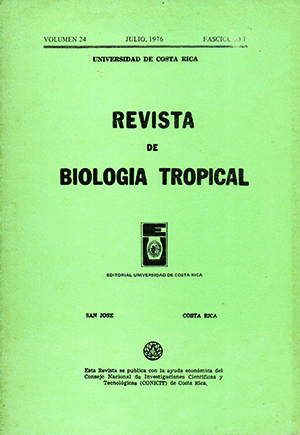Abstract
The New World strangler figs of the subgenus Urostigma and possibly most of the epiphytes, stranglers and banyans of the subgenera Urostiga and Ficus in the Old World bave viscid achenes. When these achenes are ingested by birds and bats they are voided without offering any apparent change in viability or in the vise id coat. Digestion of the viscid coat by soil bacteria prior to germination explains why Urostigma seeds in the New World always germinate where there is soil and organic matter as well as humidity (floor of the forest, soil-containing cracks or cavities in tree trunks and rocks).
Urostigma and mulberry (Morus rubra) seeds planted experimentally in sterilized soil failed to germinate, but responded favorably when inoculated with untreated soil.
References
Bessey, E. A. 1908. The Florida strangling figs. Annual Rep. Missouri Bot. Gard., 19: 23-33.
Corner, E. J. H. 1958. An introduction to the distribution of Ficus. Reinwardtia, 4: 15-45.
King, G. 1888. The species of Ficus of the Indo-Malayan and Chmese Countnes. Ann. Roy. Bot. Gard. (Calcutta), 1: 1-184.
RamÍrez B., W. 1970. Taxonomic and biological studies of Neotropical fig wasps (0Hymenoptera: Agaonidae). Kansas Univ. Sci. Bull., 49: 1 -44.

This work is licensed under a Creative Commons Attribution 4.0 International License.
Copyright (c) 1976 Revista de Biología Tropical

